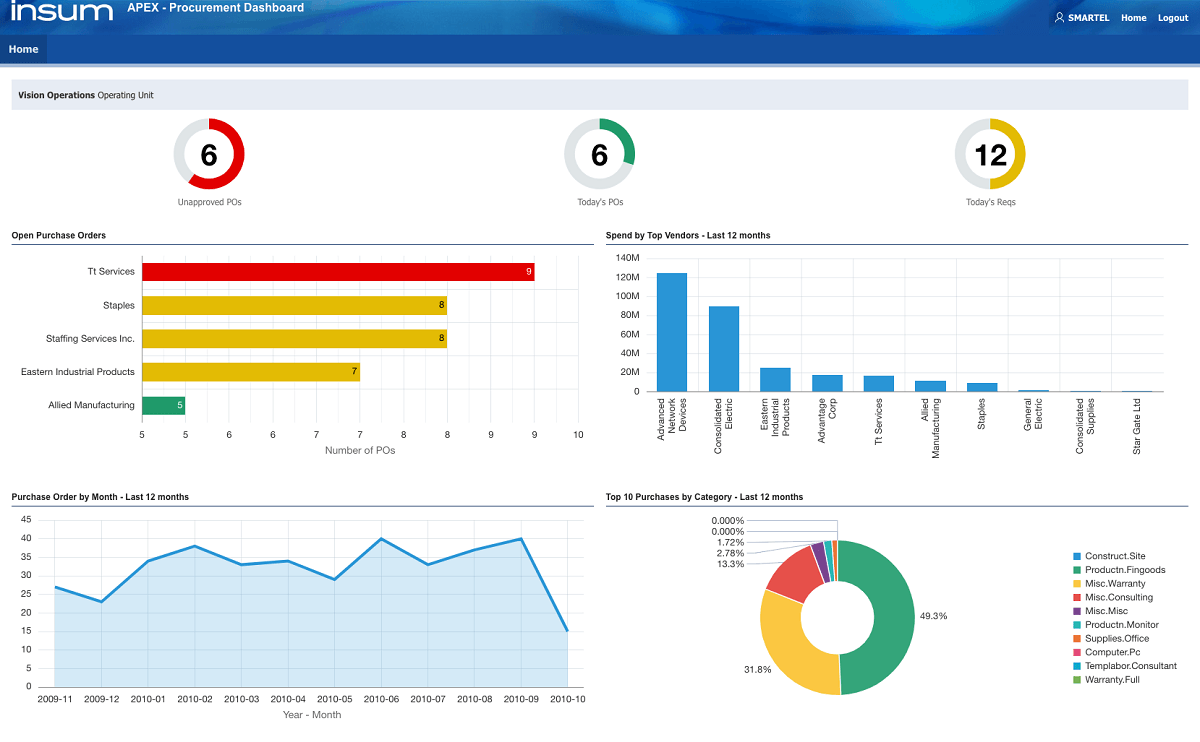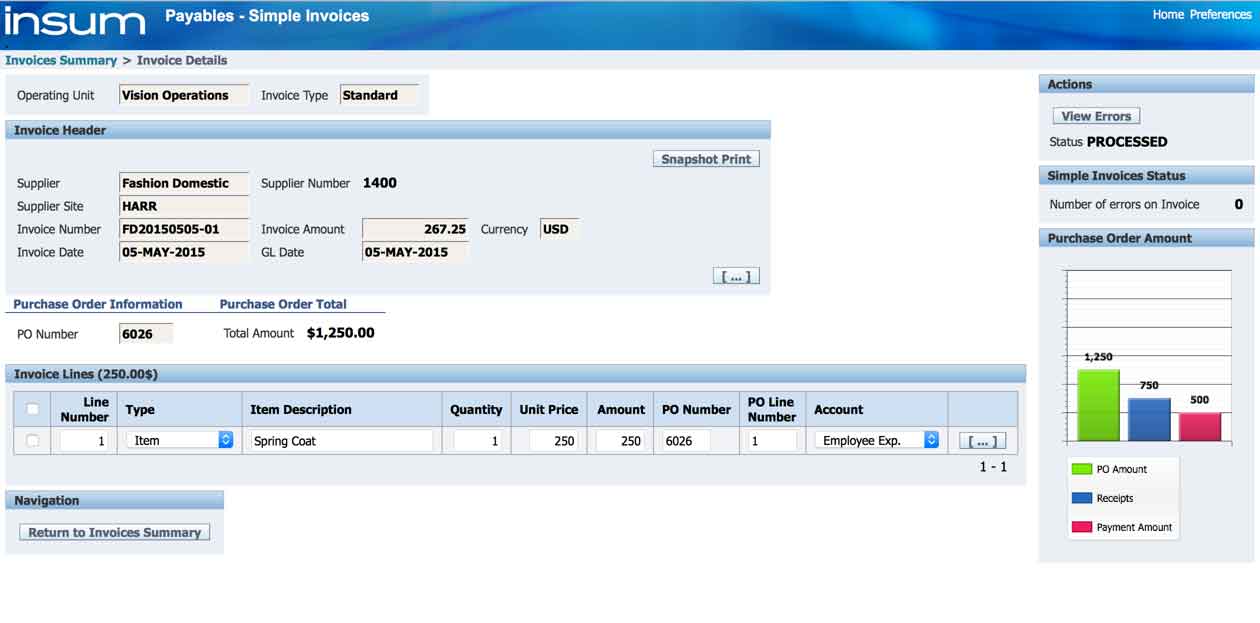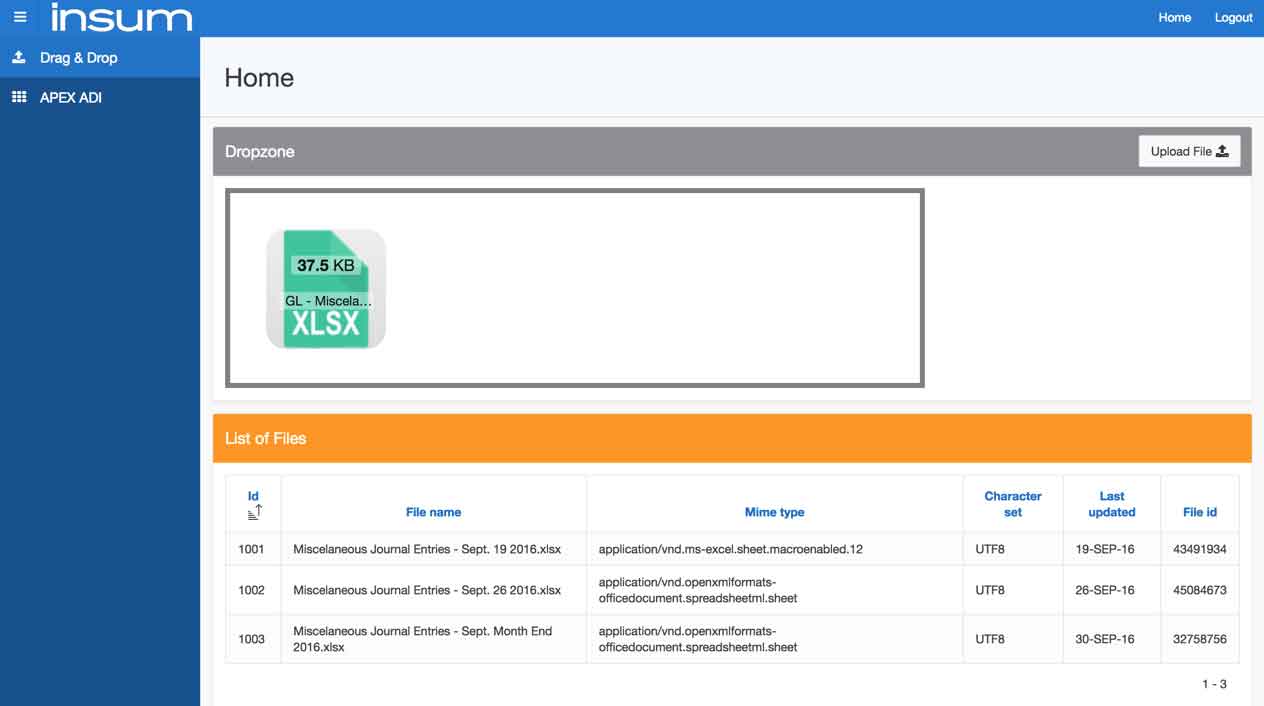Using a modern application framework like Oracle Application Express (APEX) allows organizations to create Oracle E-Business Suite (EBS) extension like never before. If you’re unconvinced, we summarized Top 5 Reasons to Use Oracle APEX to Build EBS Extensions a while back. Dashboard and interactive reports, customized data entry screen or manual or automated interfaces towards EBS are all excellent uses cases of EBS extensions using APEX.
Oracle Forms and Oracle Reports are great tools, but they are getting towards the end of their life expectancy! With the end of Java Runtime Environment (JRE) support on most browsers after 2016, it’ll become harder to rely on this workhorse for the future. Tablets and smartphones are becoming the new laptops and they won’t let you run this Java applet we all dislike…
As for Oracle Reports, well, what can I say? It’s not the most user friendly software when it comes to developing reports and position fields or making groupings and subtotals. And, as soon as the developer is done with the report design, you will quickly see a change request from the user asking for another subtotal and other features which wasn’t part of the original request… And at the end, all you have is a static report that prints on a “piece of paper” (not quite all the time but almost!). That’s not what today’s users need and want.
And what about mobile applications? Neither Oracle Forms nor Oracle Reports will help you here! If you are leaning towards offering this kind of extension to your users, you will probably think that you need to go down the path of ADF (Application Development Framework) or MAF (Mobile Application Framework). The good news is that APEX can be used to develop mobile applications with the help of built-in JQuery Mobile libraries.
On top of that, using our free EBS-APEX integration package to develop your EBS extensions with APEX, will definitely speed up development cycle.Download the E-Business Suite – Oracle APEX integration package here.
So, what are the use cases of Oracle APEX in a E-Business Suite environment? These are my top 3:
1. Dashboard & reports you really want
This is the era of dashboards, and every organization is constantly in search of better reporting capabilities and real-time management of data. EBS Extensions for Endeca is an indication of the trend organizations are leaning towards. Since the announcement of the end of Discoverer as a supported tool, a major shift in reporting is being observed.
We are not satisfied with plain “paper like” reports anymore. Users want to have a big picture of what they need to work on for the day. With a mouse click, they want to drill down to the details of numbers generated. They want to have the flexibility of being interactive with the detail reports. Adding a calculated column, converting the number into a graph and then sending the results by email.
How is Oracle APEX helping here? APEX has predefined objects that developers can use to easily create charts to be used in dashboards, or interactive reports providing lots of users functionalities while the development team is concentrating of having the SQL statement query optimized as opposed to create from scratch reports functionalities like online subtotals, additional filtering or column selection.

2. Perfect fit data entry screens
Your standard ERP can satisfy most of the data entry needs for your business processes, but each organization will uncover gaps to complete the overall process. These gaps can be filled with custom application allowing a specific data entry screen for your users.
Examples of these custom data entry screen could be:
Process accelerator: Because EBS can be configured is so many different ways, business processes that seem simple to most of us, can require several data entry screen to complete it. Once the process is configured, a custom data entry screen could make sense:
- Inventory movement
- Payment process
- Simple Invoice Data Entry
Process using EBS and external data: Combining EBS data with information from other source could be challenging. Having a custom screen to keep all the information centralize in EBS makes sure everyone in your organization is looking at the right data.
Replacing monitoring screen: They might not fall directly as being “data entry” screen, but users having to deal with AR Advanced Collections or Projects Resource Management graph are good candidate for being replaced! They are too generic in their standard version and managers don’t get all the information they need to run the business properly.

3. Interfaces and data management made easy
Now that’s a topic that everyone will recognize as being such a critical part of any organization’s business processes. That’s probably also the most fragile part of your EBS setup. Can they break your ability to run the business? Yes. Do they break at the worst time of the month? Yes.
Every organization on the planet has to deal with this. Everyone… And what’s the most popular container to “interface” with EBS? You got it, Excel! So if we think about it for a minute, we put all that money in an ERP (EBS or others), we have all that security in place, etc., yet we import or export critical business information in Excel spreadsheets, sitting on someone’s computer, using a software (Excel) that has different versions (even cloud version now), react differently based on Windows regional settings, language, etc.
The best example is Web ADI. I bet General Ledger users in your organization are using it to post miscellaneous transaction in EBS, right? Isn’t that Web ADI template a pain when you have to match it with each EBS instance?

Building a solution using APEX to replace Web ADI is a great example where, even if we will still use Excel somehow, in some scenarios we can find a more flexible way to remove the pain around the Excel to EBS connection and focus on the information to upload. The same Excel spreadsheet can now be used regardless of the instance, no need to update a Web ADI template, wouldn’t that wonderful? Hmmmm…. I might give it a try myself!
APEX can be used in many uses cases. The easiness to develop APEX applications for developers and the flexibility of the pages created for the users makes it a great option in many of the business processes where you need a custom solution to better manage your organization. Fast to develop solutions and providing results for users seems like a good combo!
If you’re looking to get started with these use cases immediately, we offer an Up and Running E-Business Suite and Oracle APEX Package designed to jump start your development. Learn more below:

Finally, if you’d like a quick introduction to this technology and how it applies to EBS I recommend you watch the video of my webinar “APEX Integration with EBS First Steps”
